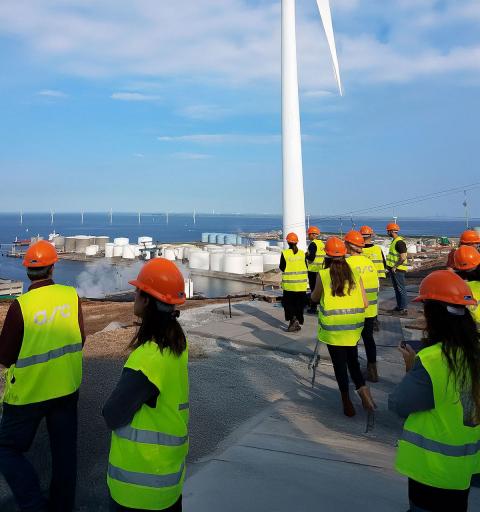
The NYU SPS Energy, Climate Justice, and Sustainability Lab
The SPS Energy, Climate Justice, and Sustainability Lab is an education and research platform that serves the business, philanthropic, and public sector in pursuit of evidence-driven energy and sustainability solutions at the local, national, and global scale. Housed within the SPS Center for Global Affairs, the ECJS Lab aims to advance energy and food security, electricity affordability and reliability, community resilience, and innovation in energy and climate finance and business.
What We Do
The SPS Energy, Climate Justice, and Sustainability Lab is an education and research platform that serves the business, philanthropic, and public sector communities in pursuit of evidence-driven energy and sustainability solutions at the local, national, and global scale. The Lab aims to be a driver of positive change, advancing energy and food security, community resilience and wellbeing, urban sustainability, and innovation in climate finance, business, and technology.
Research & Programs
Our areas of focus:
The Electricity Initiative
The mission of the NYU Electricity Initiative is to help elucidate new trends—both local and international—that are shaping the nature of electricity markets and influencing the reliability, affordability, and sustainability of electricity supply in the United States and the world. The Initiative aims to help foster ideas on how to improve understanding of the technological, economic, and social forces influencing energy markets today, with discussion and research on advancing solutions and public policy.

Climate Finance and Sustainability
Climate change is a pressing global challenge. Addressing it through adaptation and a transition to a lower carbon economy presents unique opportunities. Our research will analyze local and global climate finance opportunities and existing financial instruments to recommend solutions that incorporate more equitable, innovative solutions for funding climate resilience and energy investment.

Energy Systems and Geopolitics
The world is undergoing a major energy transition, moving from fossil fuels to a low-carbon system. This interim period, with both old and new energy systems in play, can lead to cost issues and price volatility. ECJS Lab will research how to optimize this transition, ensuring energy security and affordability. We will assess policies needed for a smooth shift and explore leveraging existing infrastructure for lower-carbon energy. Collaborating with partners, we will also investigate how digital solutions can improve energy demand management and efficiency.

Climate and Community Resiliency
Heat and severe weather events are increasing across the USA. Last year alone saw 28 billion-dollar disasters, impacting health, displacing populations, and causing energy cutoffs. ECJS Lab’s research on climate resiliency and sustainability aims to understand how people experience extreme weather, wildfires, and flooding, and how community preparedness can mitigate these impacts. The program seeks to improve outcomes by sharing knowledge among communities, specialists, and practitioners, focusing on those most vulnerable to climate events.

The Center for the Sustainable Built Environment
The Schack Institute of Real Estate hosts the Center for the Sustainable Built Environment to explore issues related to sustainability in real estate and how to advance best practices across the many disciplines that touch commercial real estate.












